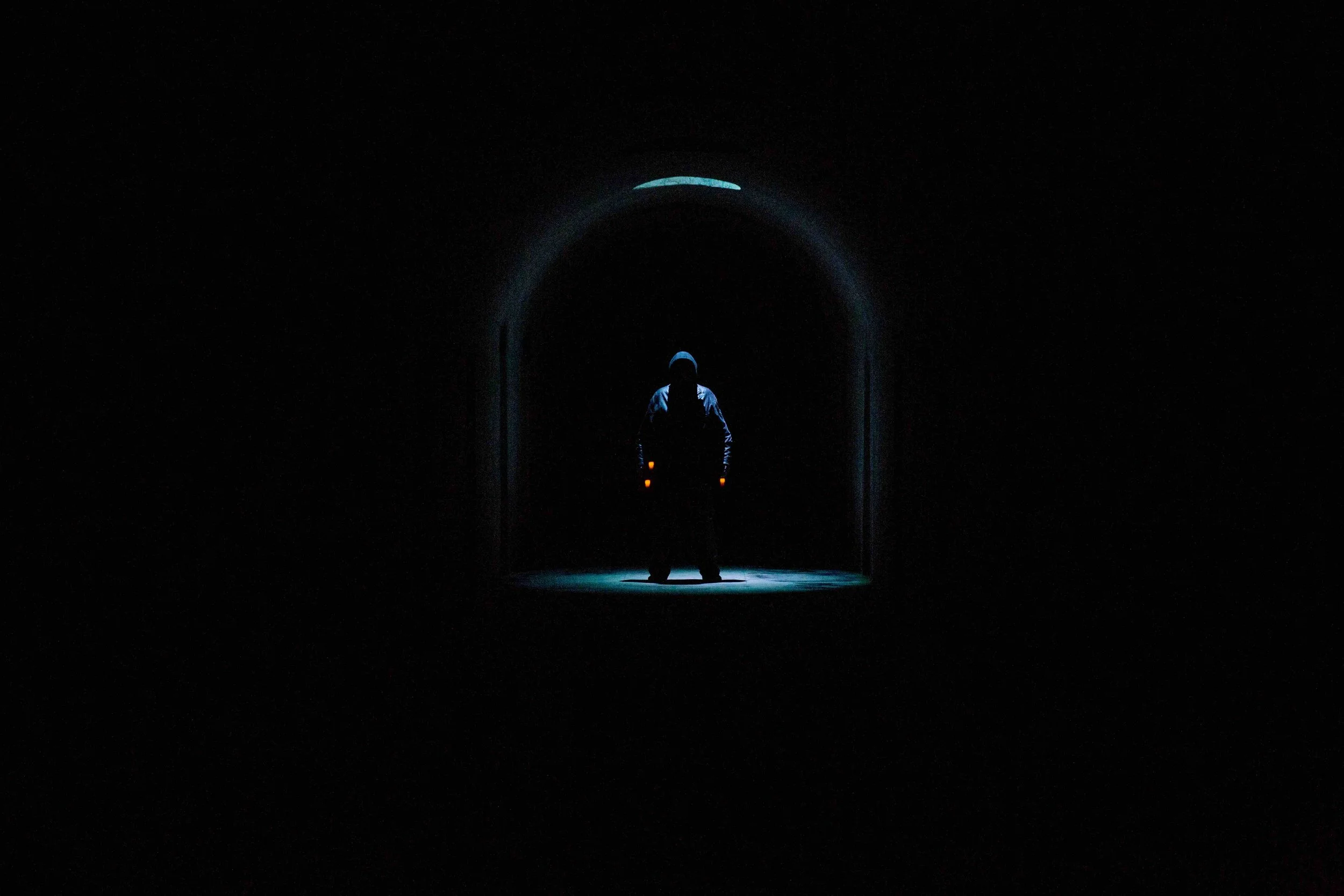an opera in two acts
music and libretto by Gregg Kallor / adapted from the novel by Mary Shelley
commissioned by Arizona Opera, funded in part by a gift from Linda and Stuart Nelson
-
World Premiere: October 13-15 (Phoenix) and 21-22 (Tucson), 2023 at Arizona Opera
Cast: 8 singers
Duration: 130 minutes
-
The Creature (baritone): Edward Parks
Victor Frankenstein (tenor): Terrence Chin-Loy
Elizabeth Lavenza / Woman 2 (mezzo-soprano): Katie Beck
Alphonse Frankenstein (baritone/bass-baritone): Gordon Hawkins
De Lacey / Man 2 (baritone/bass-baritone): Andrew Stuckey
Agatha / Woman 1 (soprano): Melissa Solomon
Felix / Man 1 (tenor): Brad Bickhardt
William Frankenstein (boy soprano): Armand Delgado
The Creature’s Companion (dancer): Chelsea Rose Neiss
-
Conductor: Clinton Smith
Director: Sarah Ina Meyers
Dramaturg: Cori Ellison
Set, Costume, and Projection Designer: Bretta Gerecke
Lighting Designer and Video Media/Implementation: Tláloc López-Watermann
Fight Director: Andrea Robertson
-
Woodwinds
1 Flute/Piccolo
1 Oboe/English Horn
1 Clarinet in Bb/Bass Clarinet in Bb
1 Bassoon
Brass
1 French Horn in F
1 Trumpet in Bb
1 Bass Trombone
Percussion
Timpani — 1 player
Percussion — 1 player
Strings
Violin I — 4 players
Violin II — 3 players
Viola — 2 players
Cello — 2 players
Contrabass — 1 player
-
Woodwinds
2 Flutes (2nd doubling Piccolo)
2 Oboes (2nd doubling English Horn)
2 Clarinets in Bb (2nd doubling Bass Clarinet in Bb)
2 Bassoons
Brass
2 French Horns in F
2 Trumpets in Bb
1 Trombone
1 Bass Trombone
1 Tuba
Percussion
Harp — 1 player
Timpani — 1 player
Percussion — 2 players
Strings
Violin I — 10 players
Violin II — 8 players
Viola — 7 players
Cello — 8 players
Contrabass — 3 players
-
ARIA: "You've Gone Away Again" — Elizabeth (mezzo-soprano)
available for PURCHASE
ARIA: "I Now See Myself Before Me" — The Creature (baritone)
available for PURCHASE
ARIA: "The World Was a Secret" — Victor (tenor)
available for PURCHASE
DUET: "Talk To Me" — Elizabeth and Victor
MONOLOGUE/SCENA: "The Creature's Tale" — The Creature
TRIO: "Wake Up" — Alphonse, Victor, Elizabeth
ORCHESTRAL SUITE: more info
VIDEOS
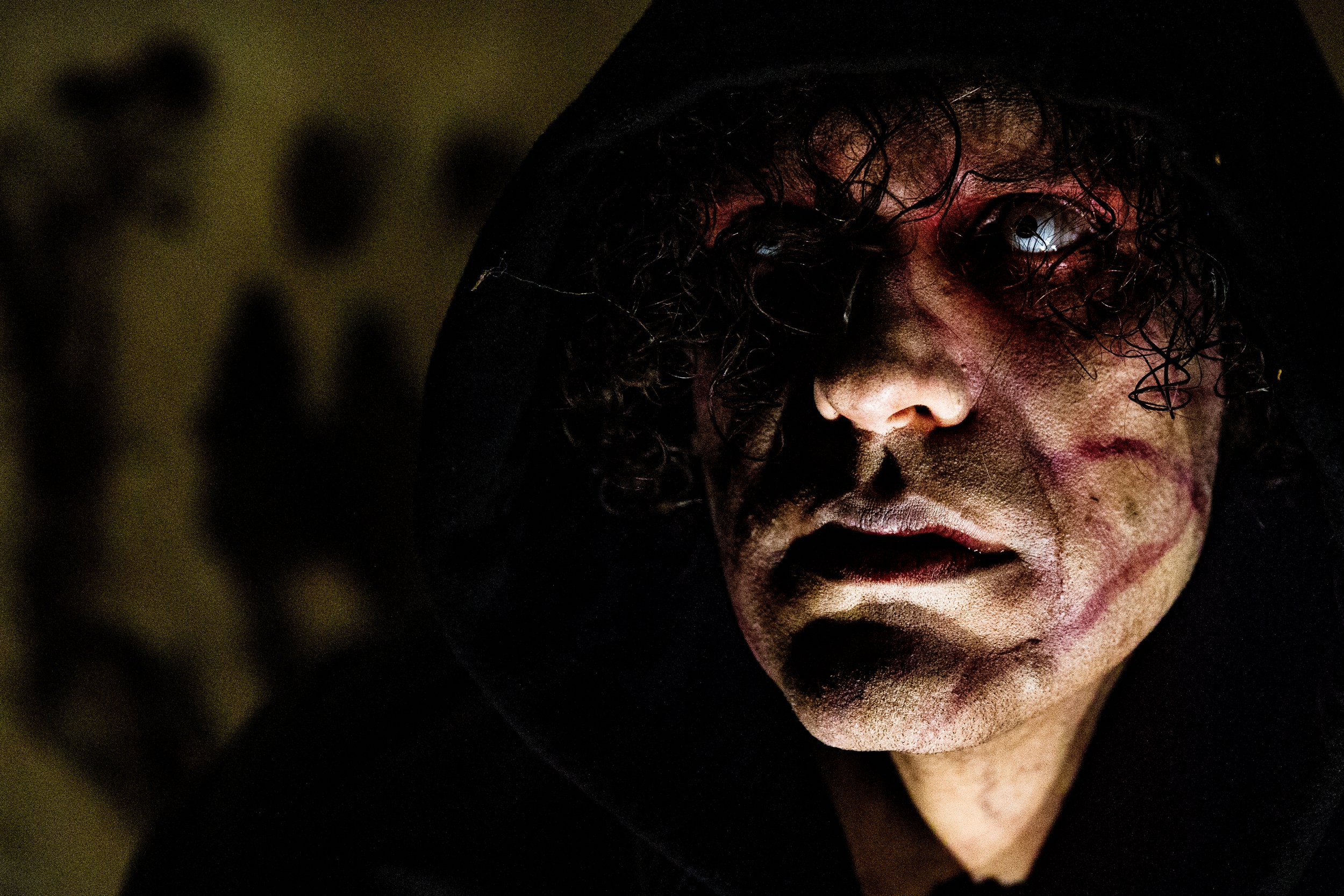
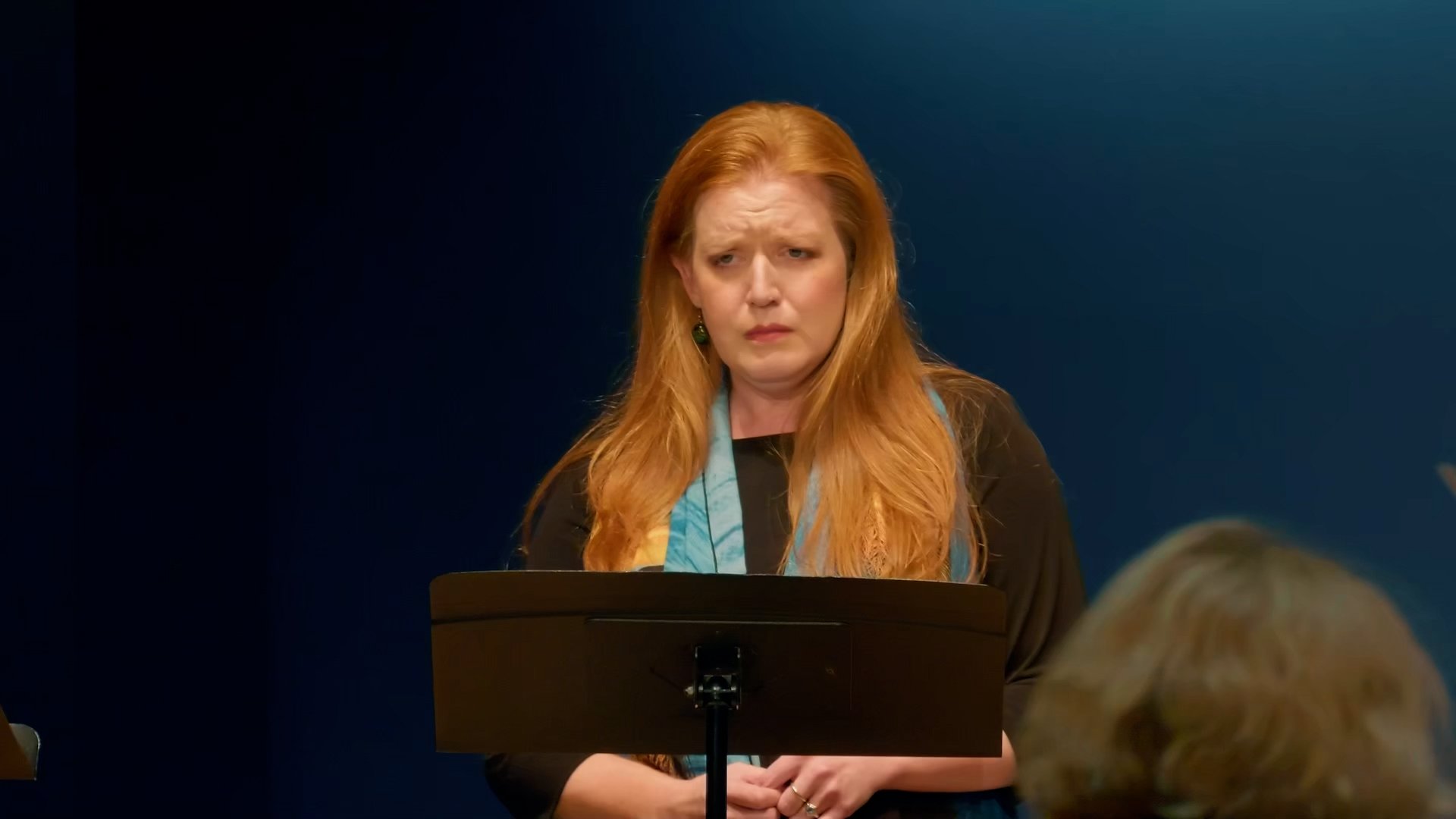
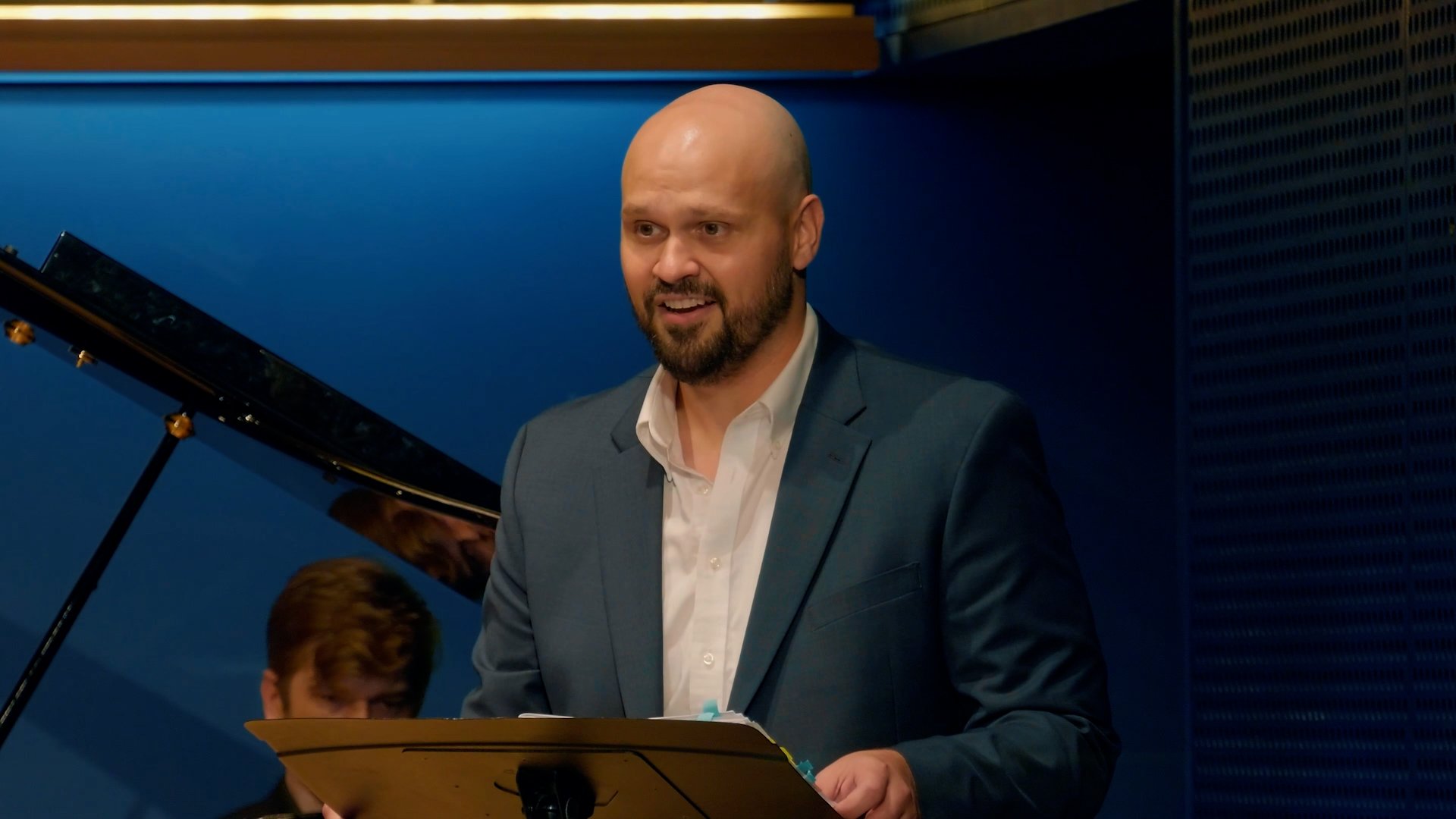
“The Creature’s Tale” excerpt
Joshua Jeremiah, baritone; Joshua Roman, cello; Gregg Kallor, piano
recorded at the initial workshop at the historic Catacombs of Green-Wood Cemetery in Brooklyn, NY in 2018
Elizabeth’s aria and The Creature's aria
Jennifer Johnson Cano, mezzo-soprano; Edward Parks, baritone; Jason Wirth, piano; Nicole Paiement, conductor
recorded at the workshop at Opera America in New York City in 2021
This is everyone’s story
Mary Wollstonecraft Shelley’s 200-year old novel, Frankenstein, continues to inspire storytellers — including this one — to breathe fresh life into the tale for their own generation because it speaks to something fundamental about human nature. Frankenstein is a horror story, but not in the way people often think of it; the real horror is the agony of a living being who is callously abandoned by the man who created him. Alienated and persecuted, this being endures terrible suffering because of the otherness to which he is reduced, and for which he is feared and reviled.
Frankenstein resonates so deeply because it holds up a mirror and asks us to consider our own humanity. Who’s the monster: a creature who is “other” — or the person who can’t see past this difference, and acts hatefully? What drives my creation of this opera is Shelley's exquisitely wrought plea to look deeper within ourselves to find our commonality, and to uphold our responsibility to one another. The Creature’s tragic existence is a stark reminder of the urgent need for empathy.
I believe that telling this story — at this time, and in this way — is vital.
—Gregg Kallor 2023
"Here, as in The Tell-Tale Heart, Kallor achieved a perfect balance of text and music. The libretto hued quite closely to Mary Shelley’s original text, serving as a welcome reminder of her wonderful prose. Kallor’s music is a most interesting synthesis of elements of classical and jazz, galvanized into a singular compositional voice. There is plenty of heartfelt lyricism in his music, yet also enough complexity to keep it intriguing for those of us who seek more."
–Arlo McKinnon, Opera News
“Gregg Kallor's "Frankenstein" is the very definition of what modern-day opera should aspire to be.”
—Cathalena E. Burch, Arizona Daily Star
“A Masterpiece of Horror and Humanity”
“this musical drama [is] a masterpiece and a significant addition to the operatic repertoire.”
“…the opera leaves the audience pondering the blurred lines between good and evil; the nature of humanity itself; and the vital importance of love, virtue, kindness, and beauty. FRANKENSTEIN is an absolute triumph!”
—Herbert Paine, Broadway World
“features a hauntingly beautiful score by Gregg Kallor and captures the essence of the classic novel, infusing it with a depth of emotion.”
“Kallor's score is gorgeous, with… soaring yet introspective arias which flesh out the emotional turmoil, pain, and suffering of the characters.”
“quite impressive and sounds simply gorgeous"
—Gil Benbrook, Talkin’ Broadway
The world premiere of Sketches from Frankenstein was featured as one of the Most Memorable Concerts of 2018 by both WQXR and OperaWire!
"But if I simply must select a single performance, above all, then that is actually quite easy: Gregg Kallor’s Sketches from Frankenstein.”
–Matt Costello, Opera Wire
“The observations in the words, and the depth of feeling in the music were extremely powerful.
... the monster’s anguished monologue that encompasses so much of the story’s larger themes could easily be a ‘scena’ to perform in recitals… the penetrating dramatic truths of Frankenstein might co-exist with 19th-century lieder more easily than one might think.”
–David Patrick Stearns, Condemned To Music
“Kallor’s dynamically-charged score is intricate yet approachable with long, singable lines and plenty of moody atmosphere... What it does do extremely well is support the emotional journeys of its protagonists.
… As Frankenstein recounts his creation’s chilling promise that “I will be with you on your wedding night”, a hollow voice drifts in from an adjoining burial chamber to merge in haunting harmonies – a seriously chilling moment.”
–Clive Paget, Limelight
“The score of these sketches was modern, edgy, well-matched to the subject matter, while not being chaotically 12-tone. The cello, played with a warm beauty by Joshua Roman, echoed the sung pleas of both the creature and the cornered Frankenstein. You can imagine what that wonderful instrument sounded like in the stone chambers.
And the composer played the piano part, his technique itself dazzling as he kept the propulsive, fierce music racing to match the emotional intensity of the dramatic scenes being played, both on the stage area, and even amidst the audience itself.
Quite something. The singers also reveled in the drama and the sheer sonority of the piece.
... It’s my guess that everyone in attendance came away from this night feeling that this had been an extraordinary experience.”
–Matt Costello, Opera Wire
“The moving performance, a credit to Kallor, was also a reminder of the emotional depths in Frankenstein, a quality nearly forgotten in the teenage Mary Shelley’s evocation of fear and longing at the dawn of industrial science. Frankenstein is so often read as an allegory of scientific hubris, of humans’ ability to play God with nuclear power, genetics, and artificial intelligence, that its poetry and complexity have all but been obscured by images of Robert Oppenheimer, Craig Venter, and Ray Kurzweil. Shelley didn’t write an admonition on playing God. She wrote a story about humanity losing its soul.”
–Kevin Berger, Editor
“Kallor’s music is equally Straussian in scale and emotional impact.”
–Rick Perdian, Seen and Heard International
“Kallor’s a musician of great atmospheric sensuality, who, on opening night, played piano with equally great sensitivity.
While many previous [Frankenstein] retellings have milked the Romantic horror angle of the epistolary fable or simply reached for camp, Kallor focuses his account on the psychology of the beast, the loneliness experienced by a creation who yearns for (but can never quite realize) companionship.
... the portrait was complex, by turns frightening and sympathetic.”
–Joel Rozen, Parterre Box
“Kallor’s sterling artistry and riveting sense of theater made this October journey to Hell and back an experience to savor.
Kallor’s music is many good things: intelligent; unapologetically theatrical; emotionally evocative; virtuosic yet sensitive in its texturing. It is tonally coherent without overt predictability, accessible without banality. Kallor consistently provides precisely calculated support to his vocal lines, while also giving them temporal and contrapuntal space in which to work their condign effects.
Spooky, meaty stuff.”
–Charles Geyer, My Scena
“Audacity informed everything about this performance.
... These were sketches, of course, which the composer terms a work in progress, but I hope the final shape of the piece keeps the terrifying intimacy that we witnessed in Brooklyn.
... This is a composer I look forward to following.”
–Byron Nilsson, Words and Music
“The greatest achievement of Kallor’s scores turned out to be the contrast between the stubborn unresolve of the music and the sheer anthemic catchiness of the vocal melodies.”
–Alan Young, New York Music Daily
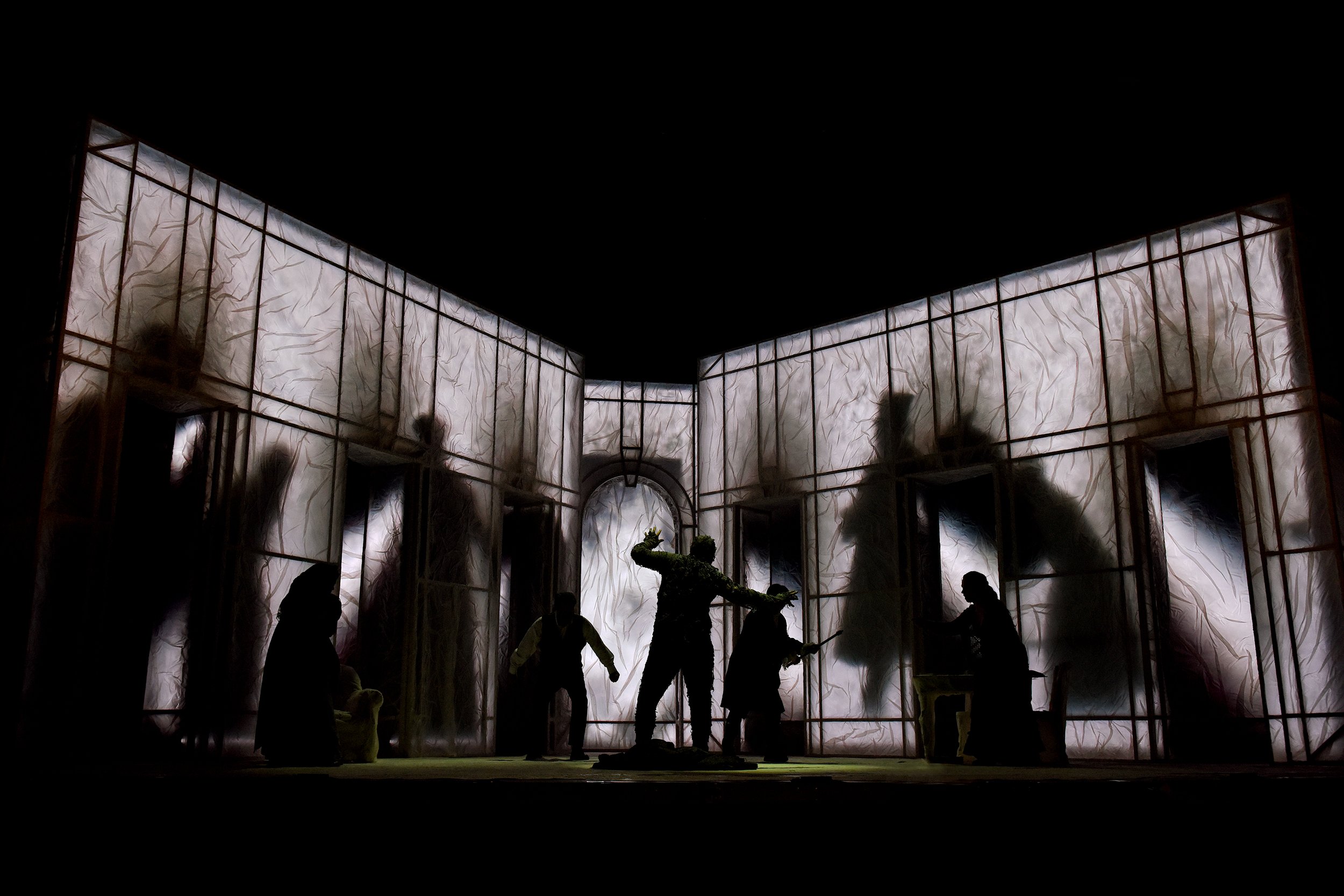
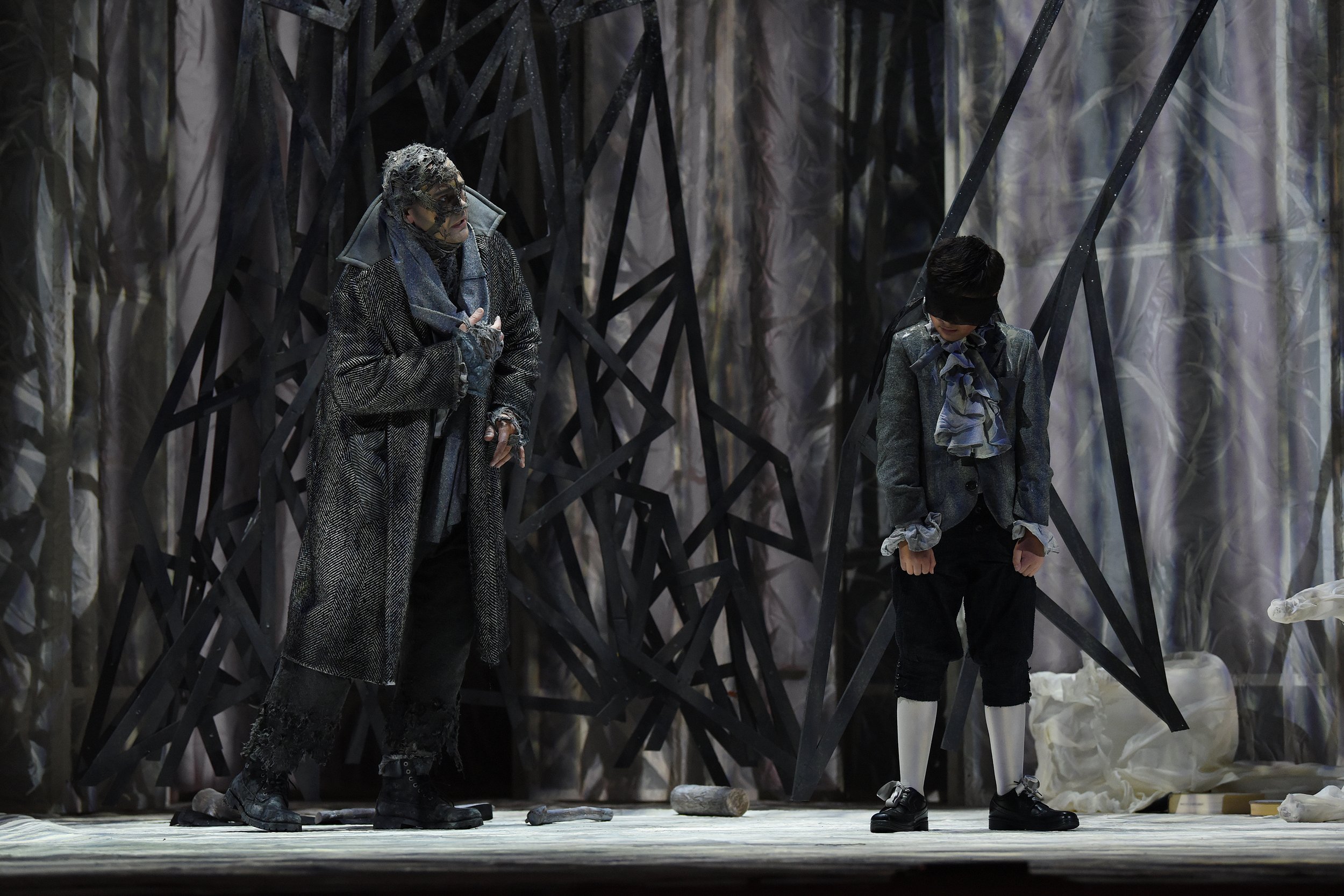
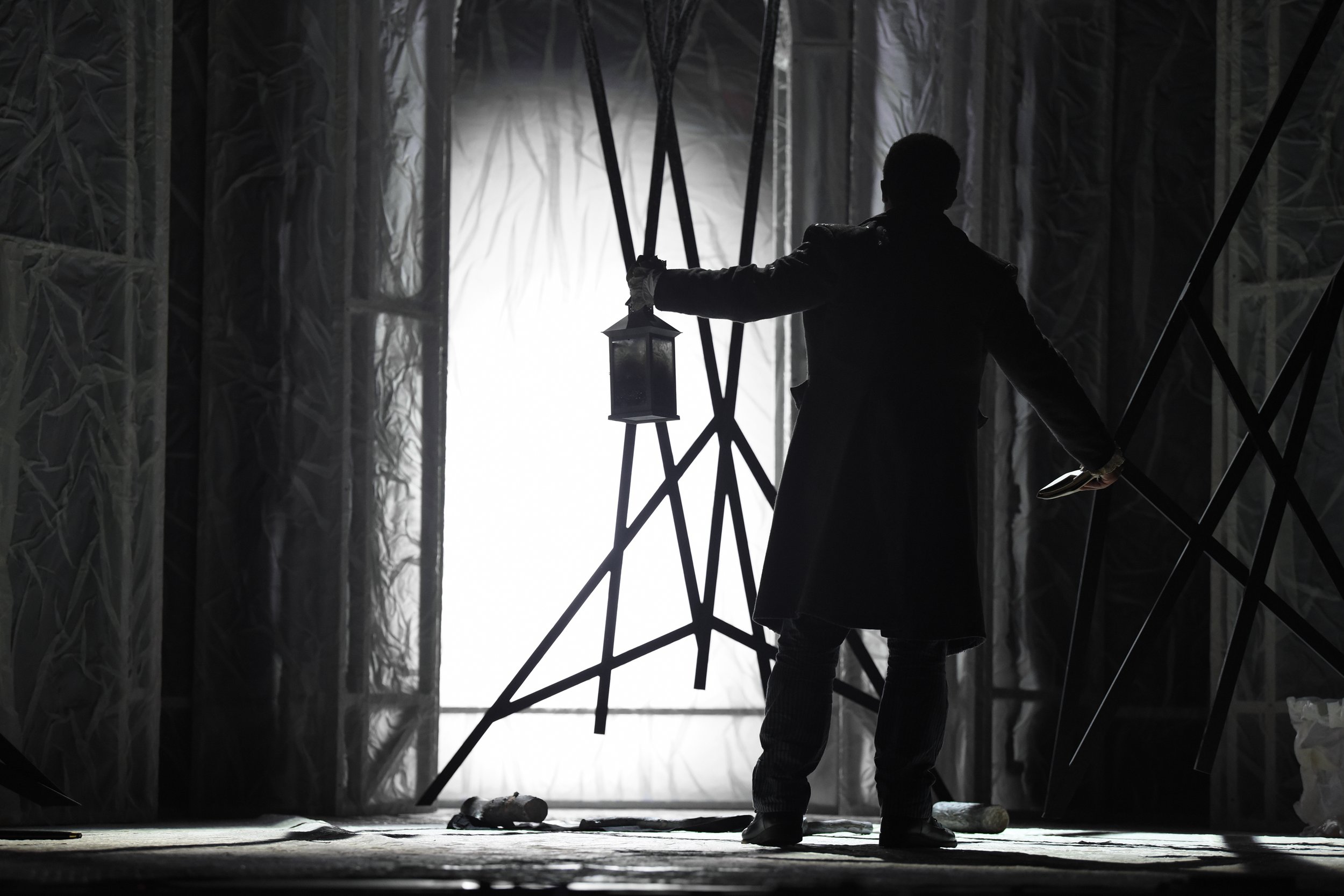
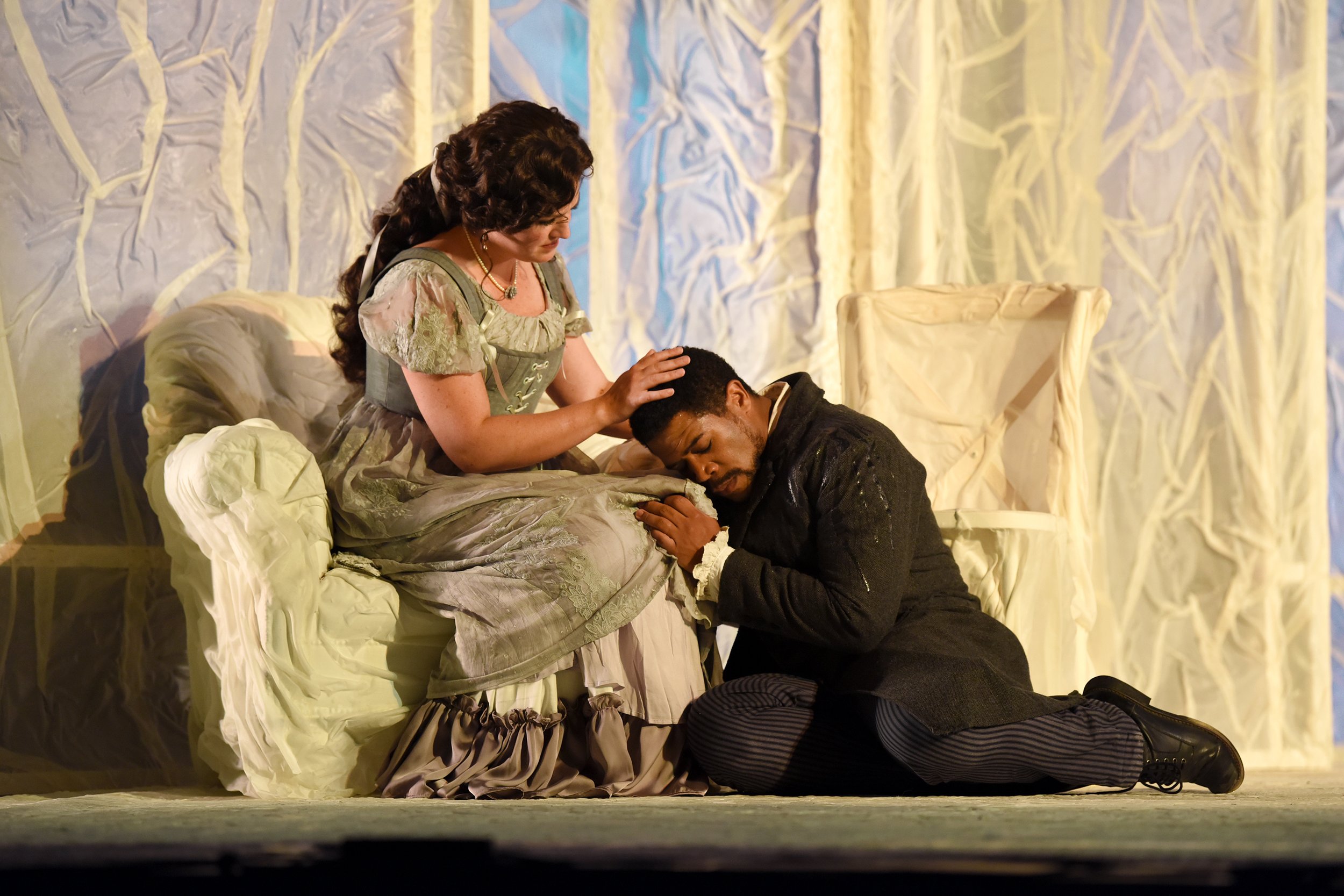
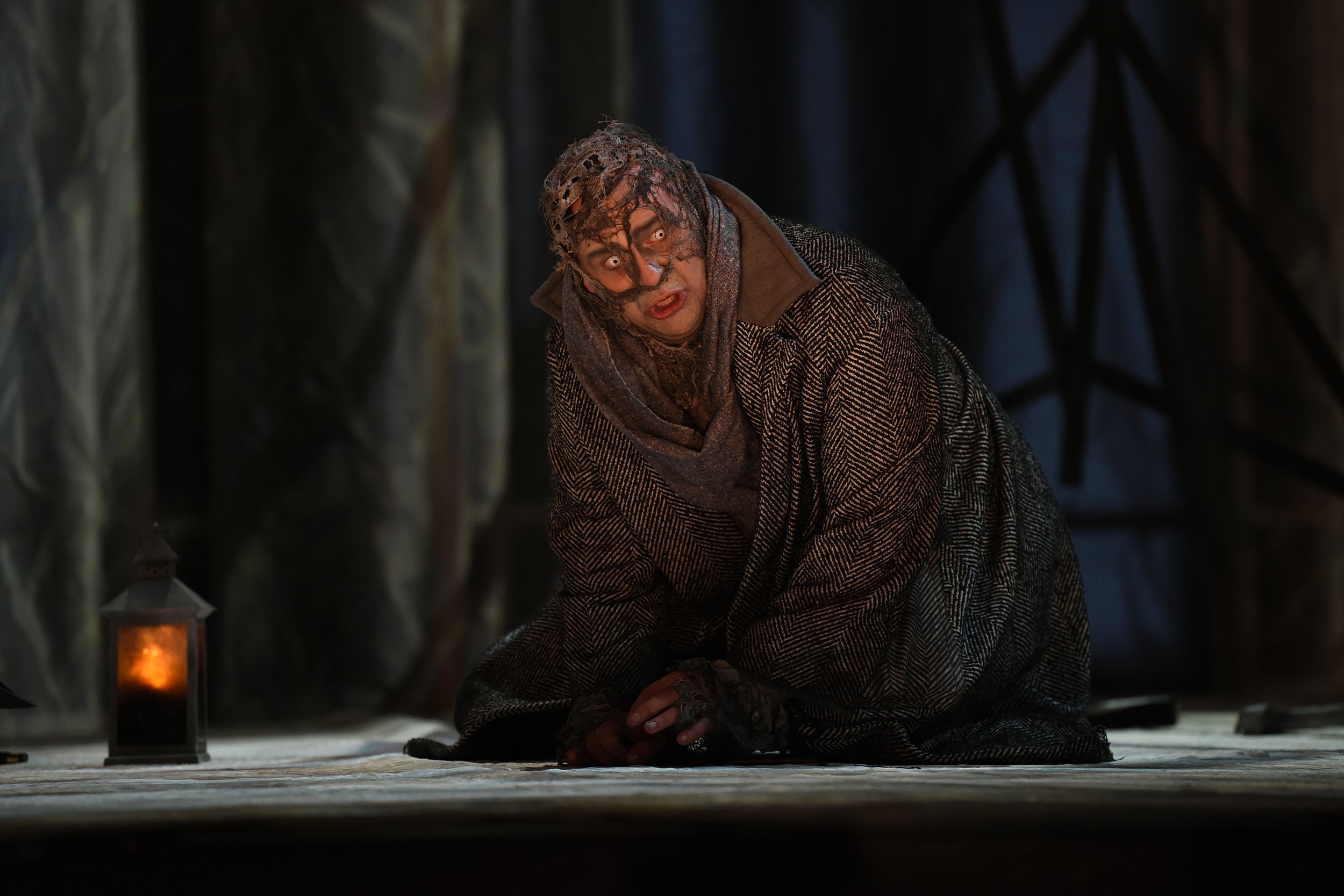
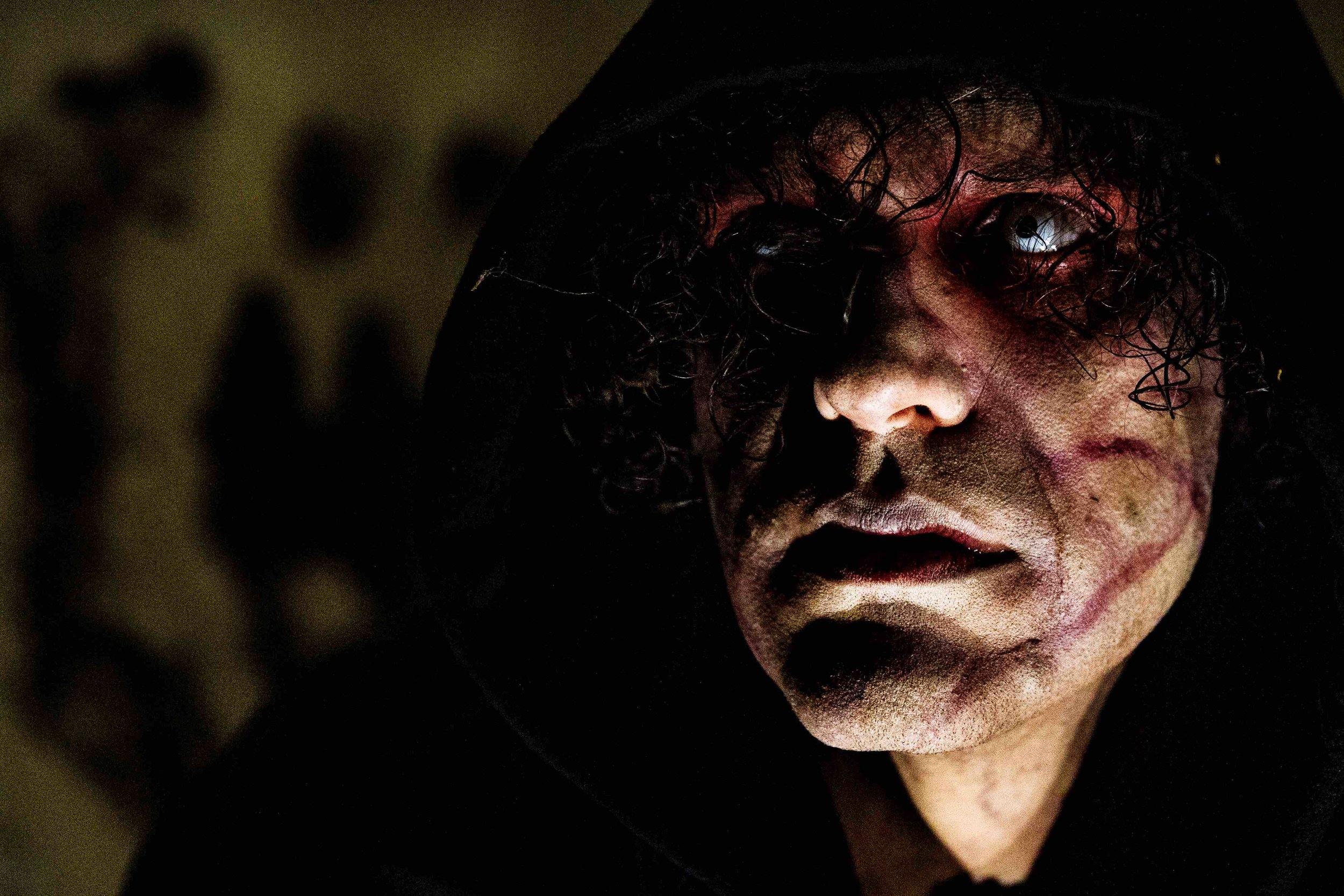
photos by Tim Trumble and Kevin Condon
